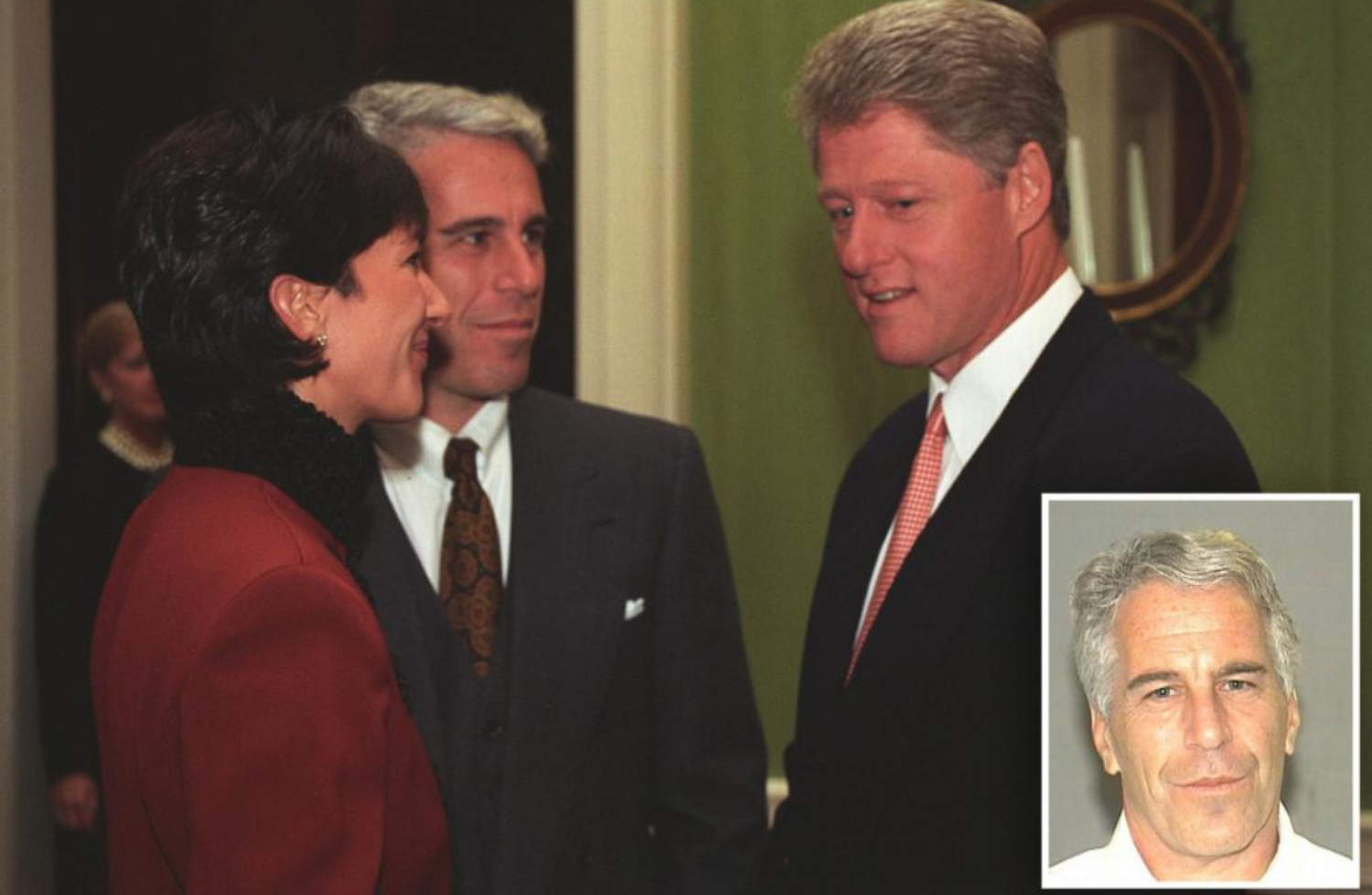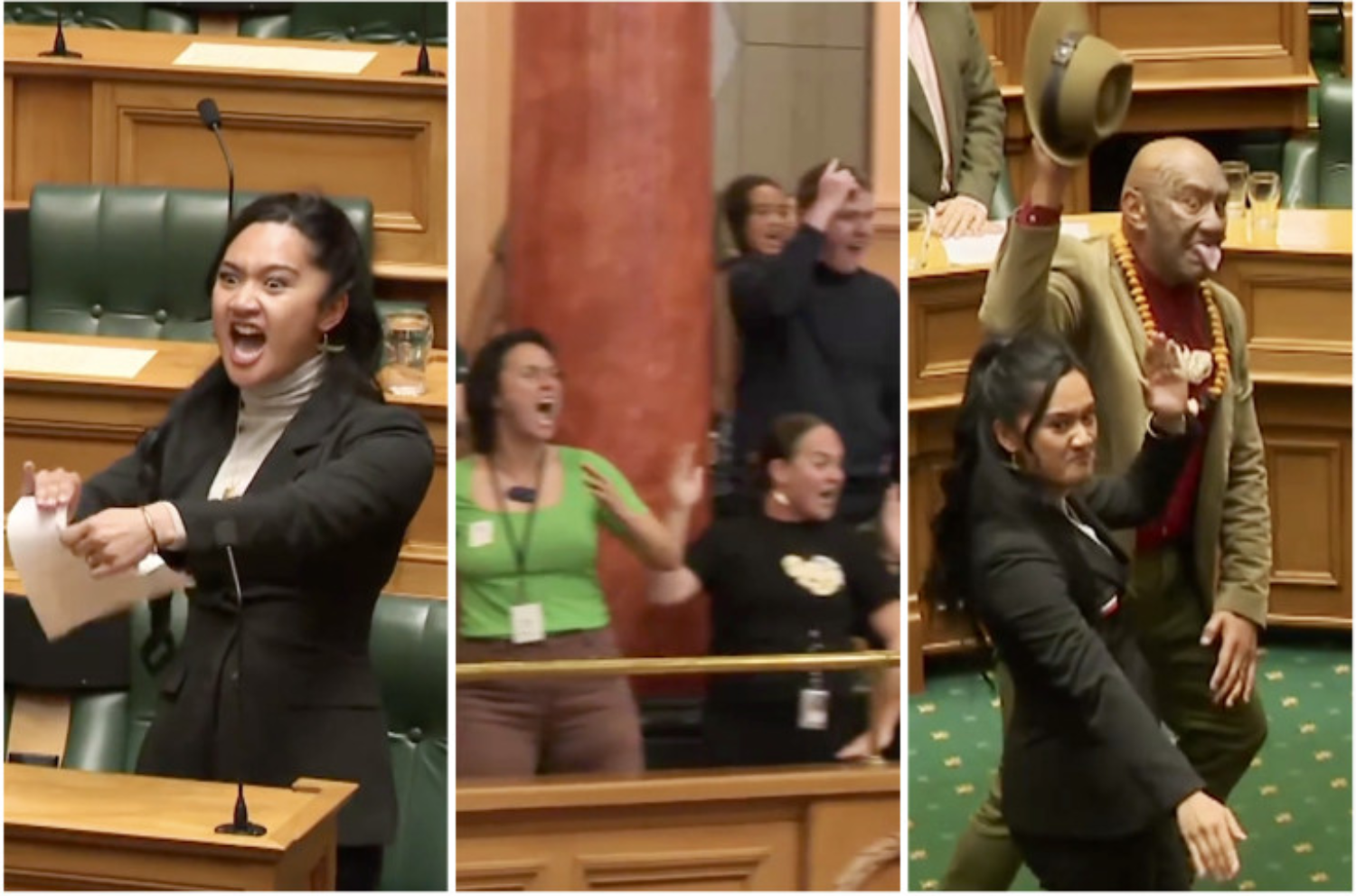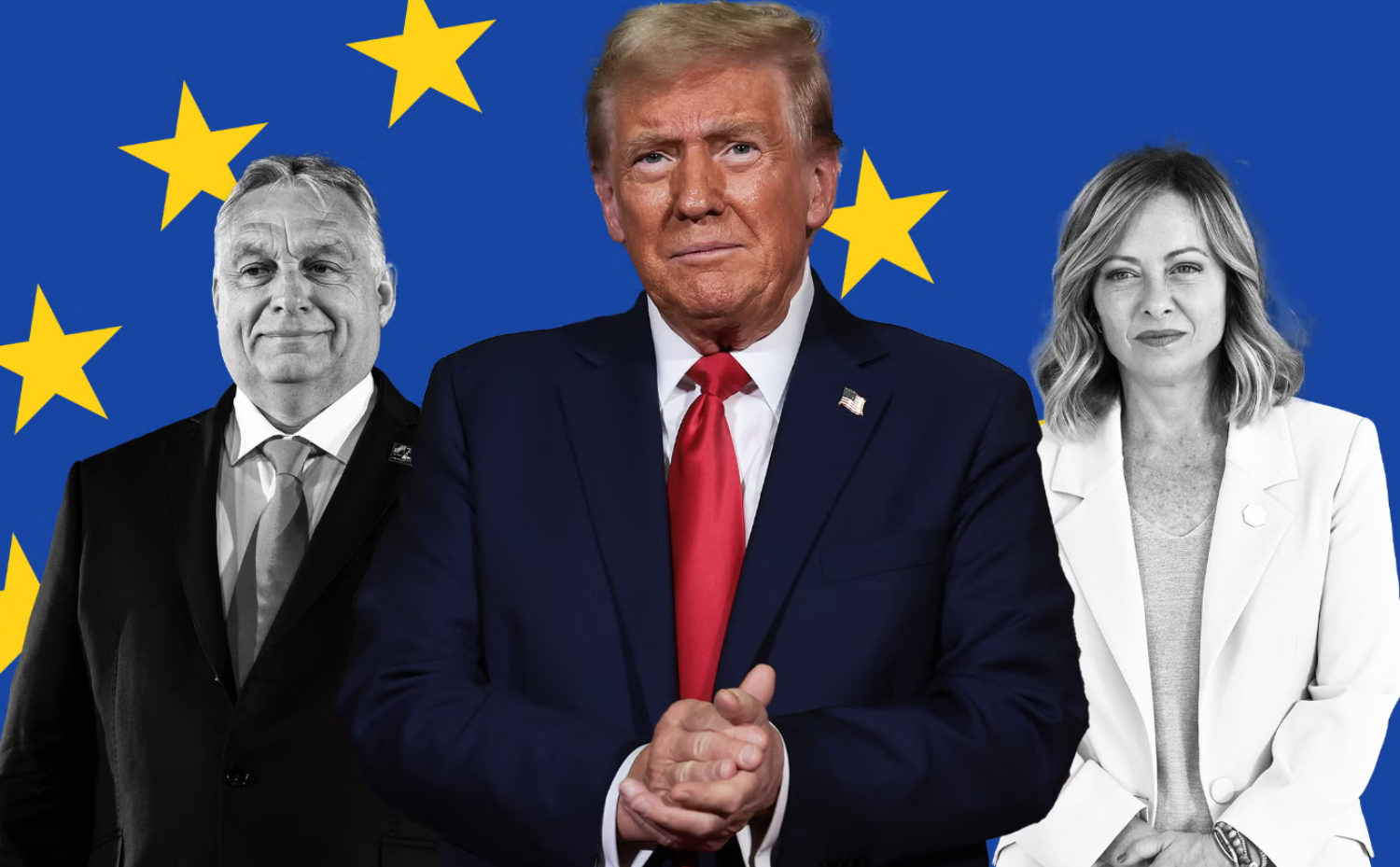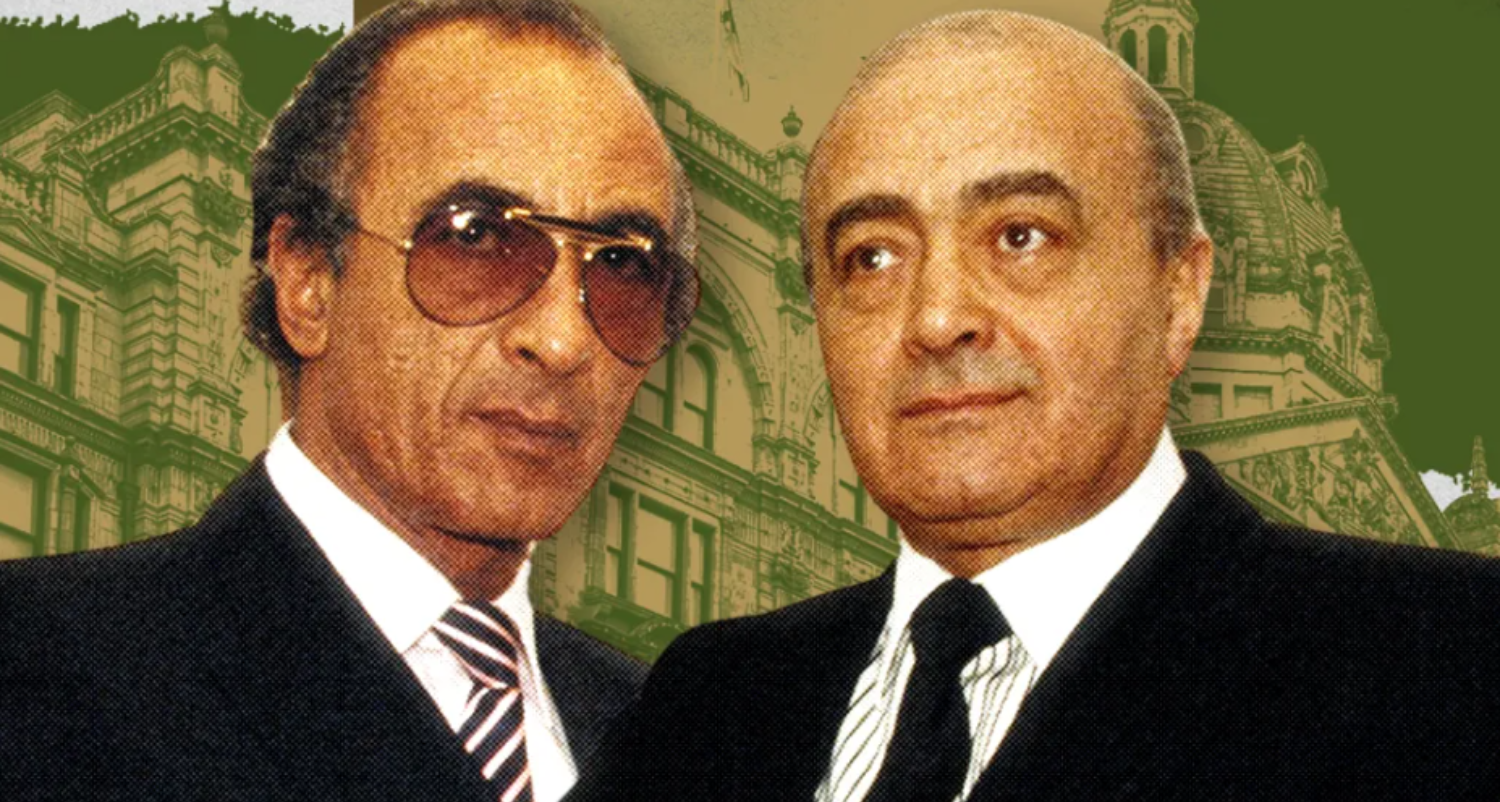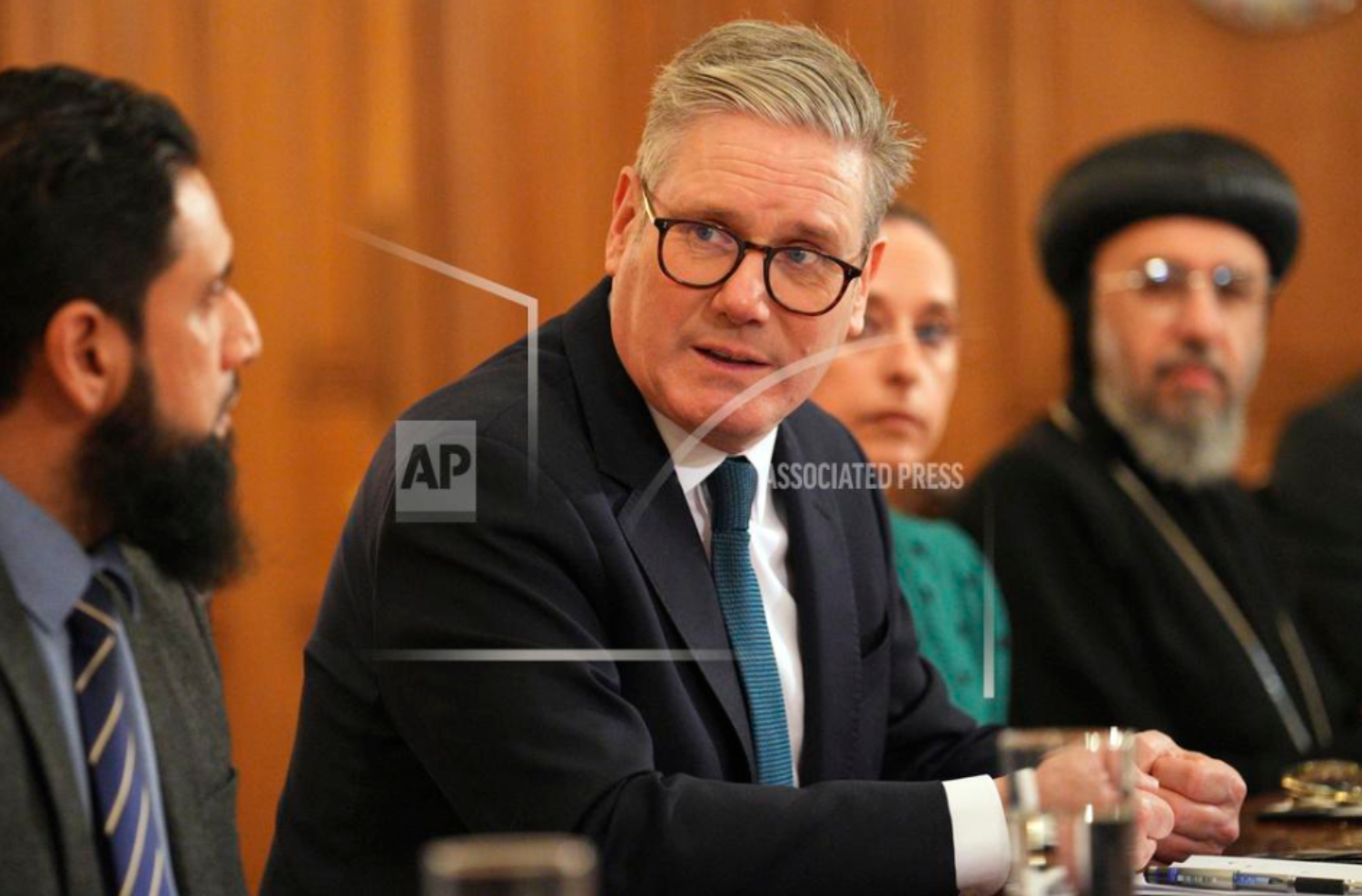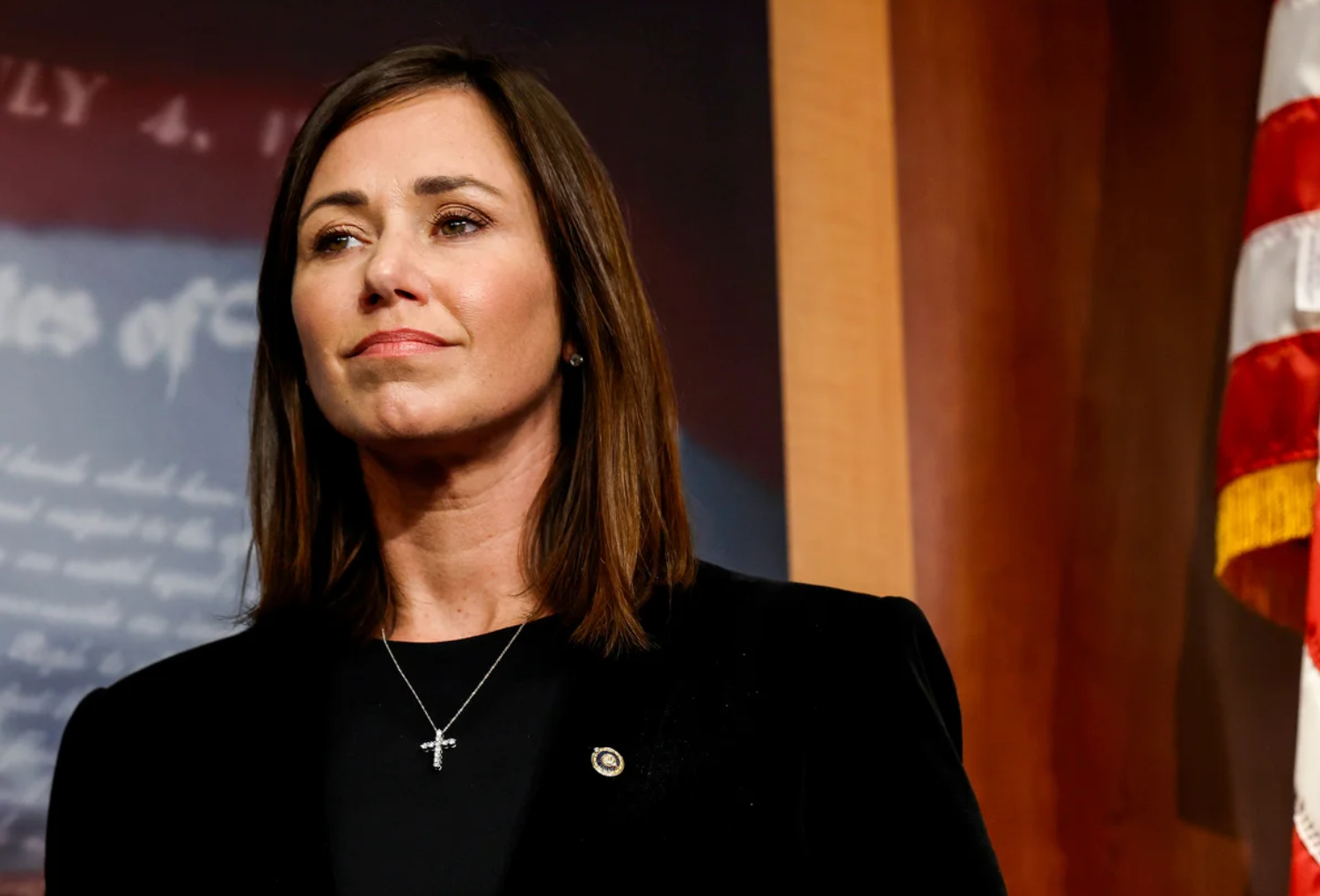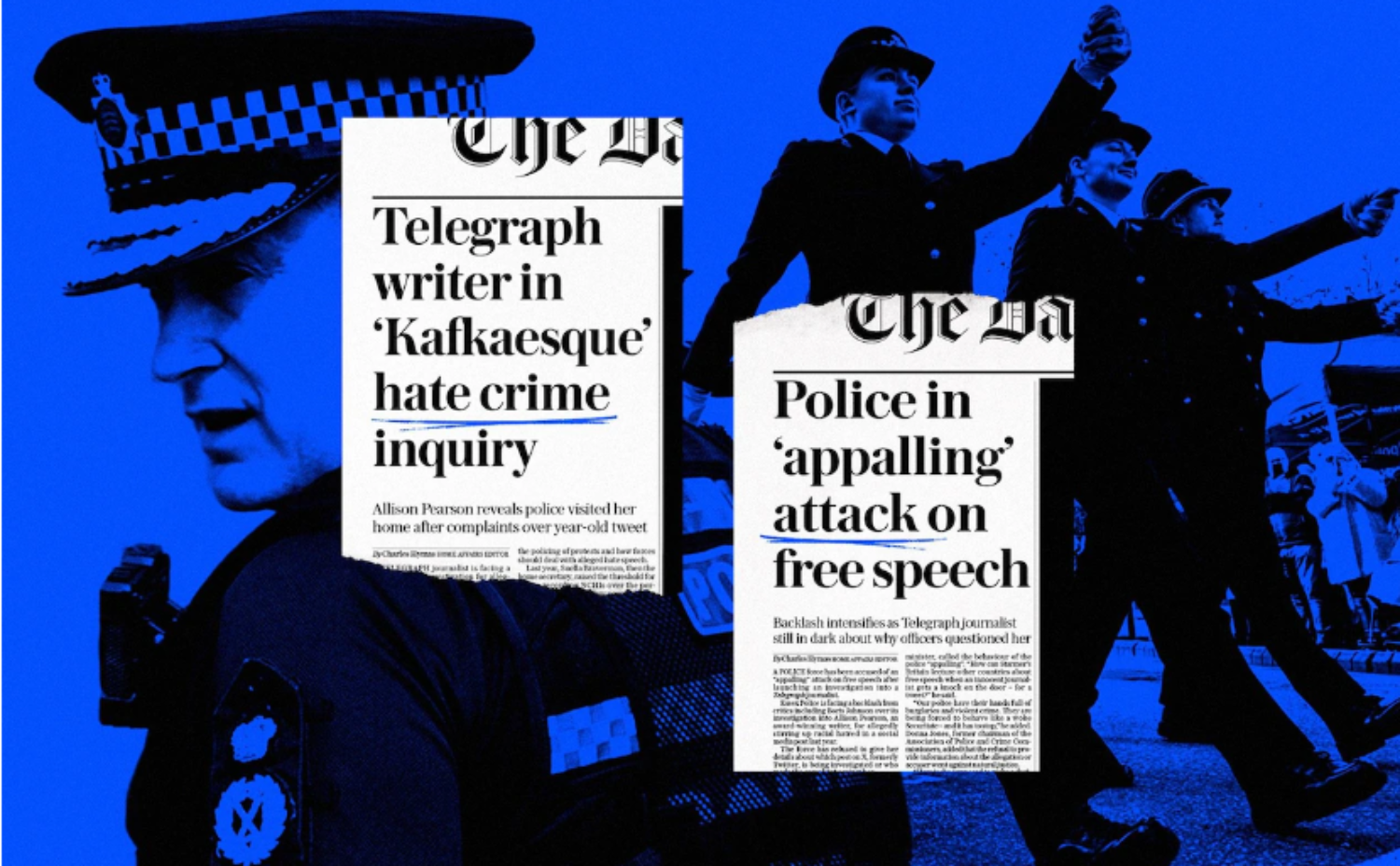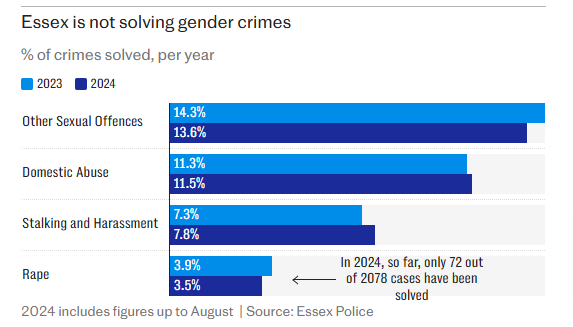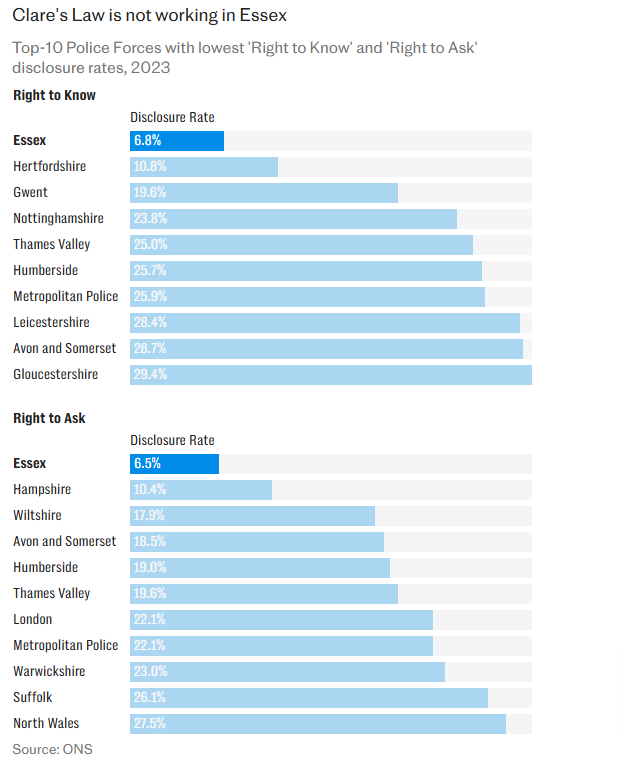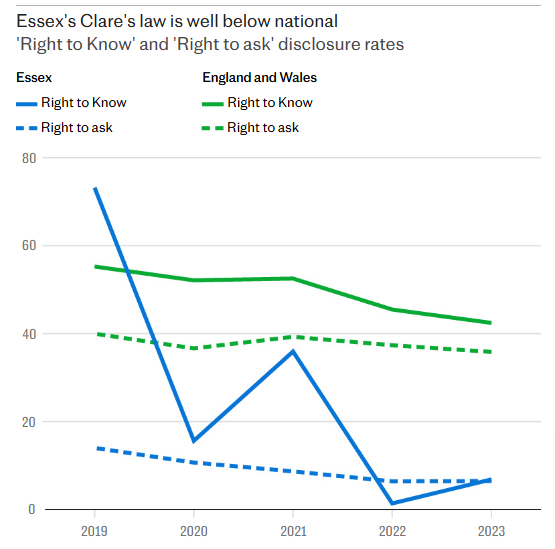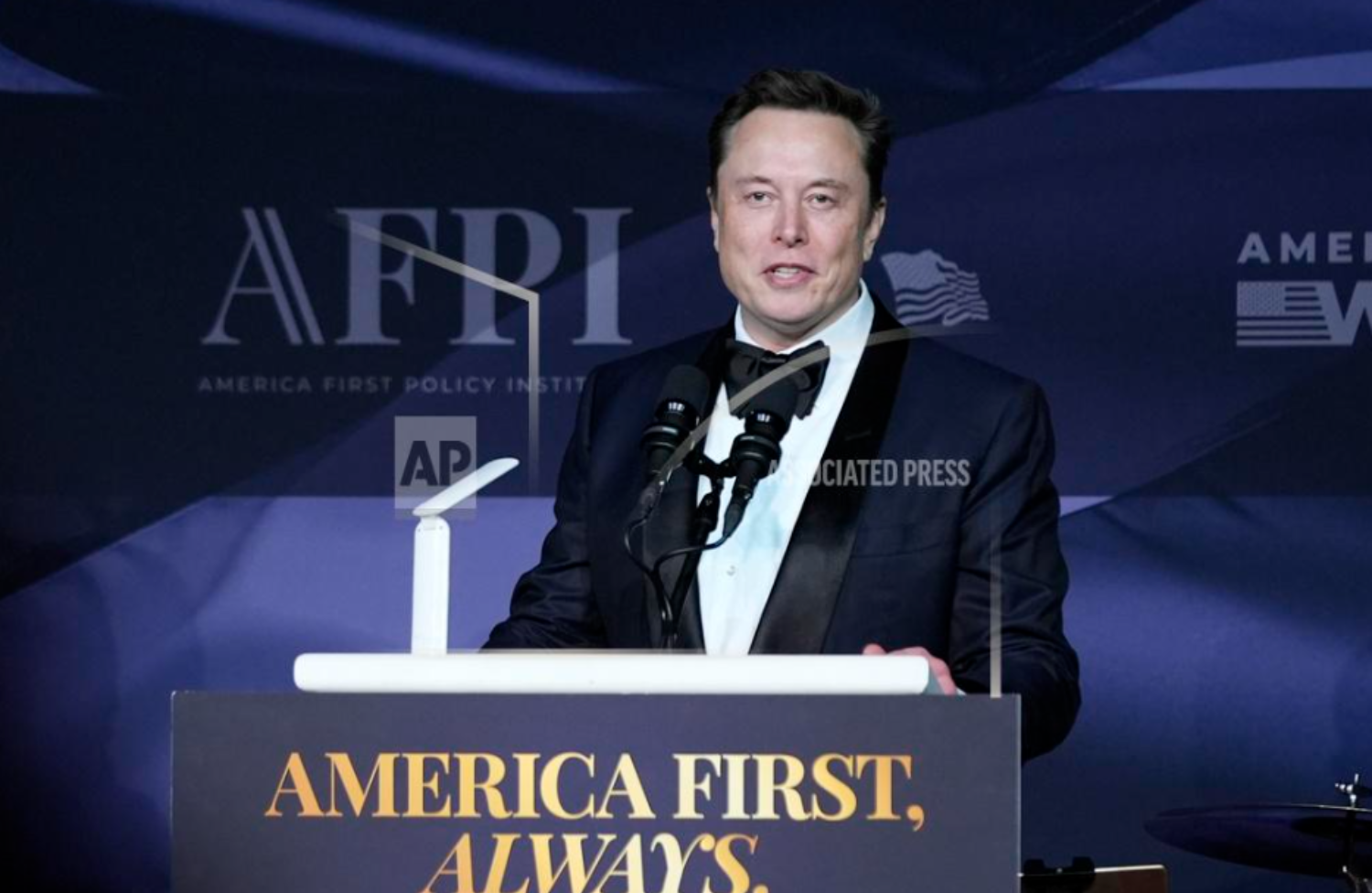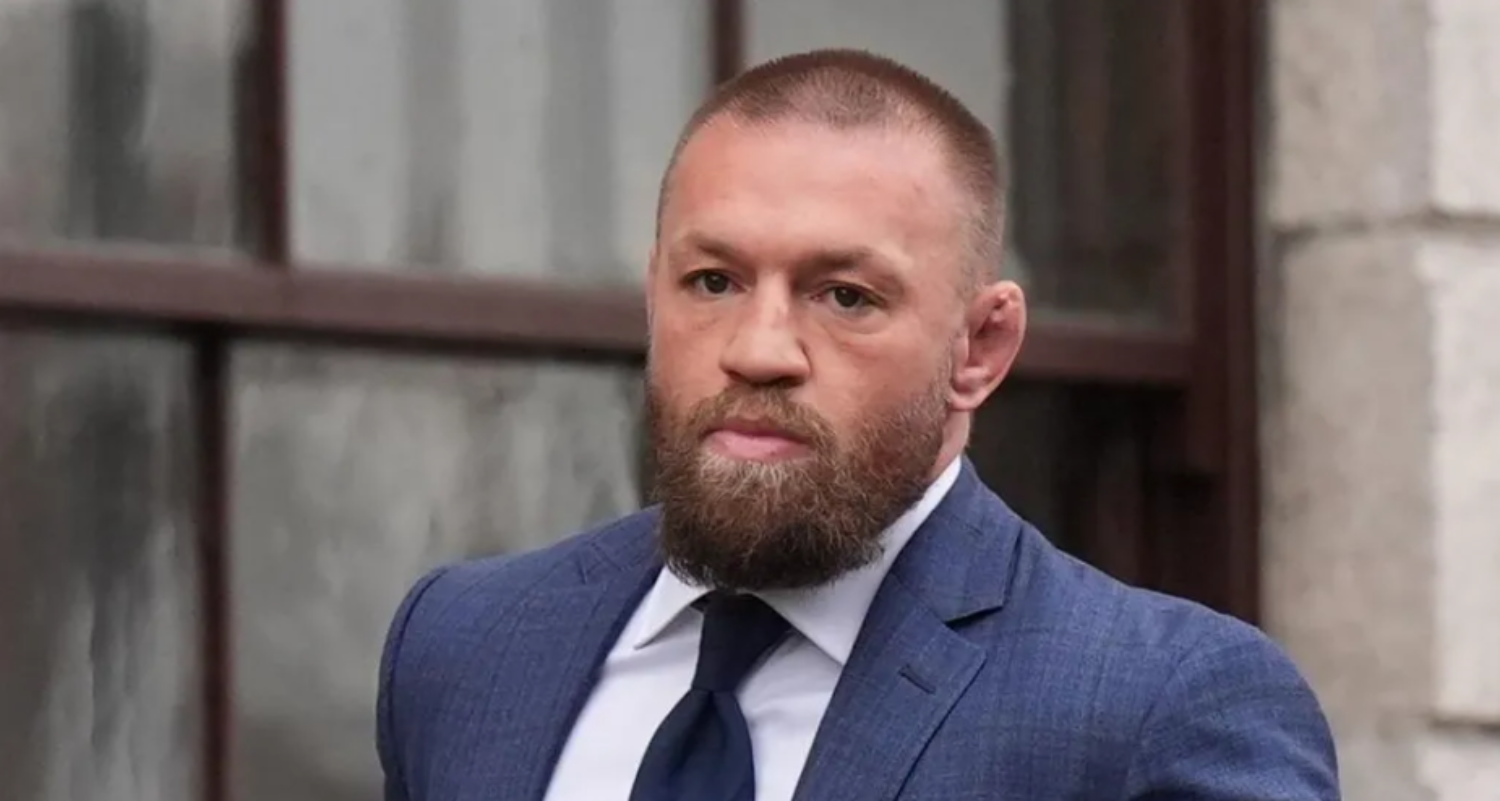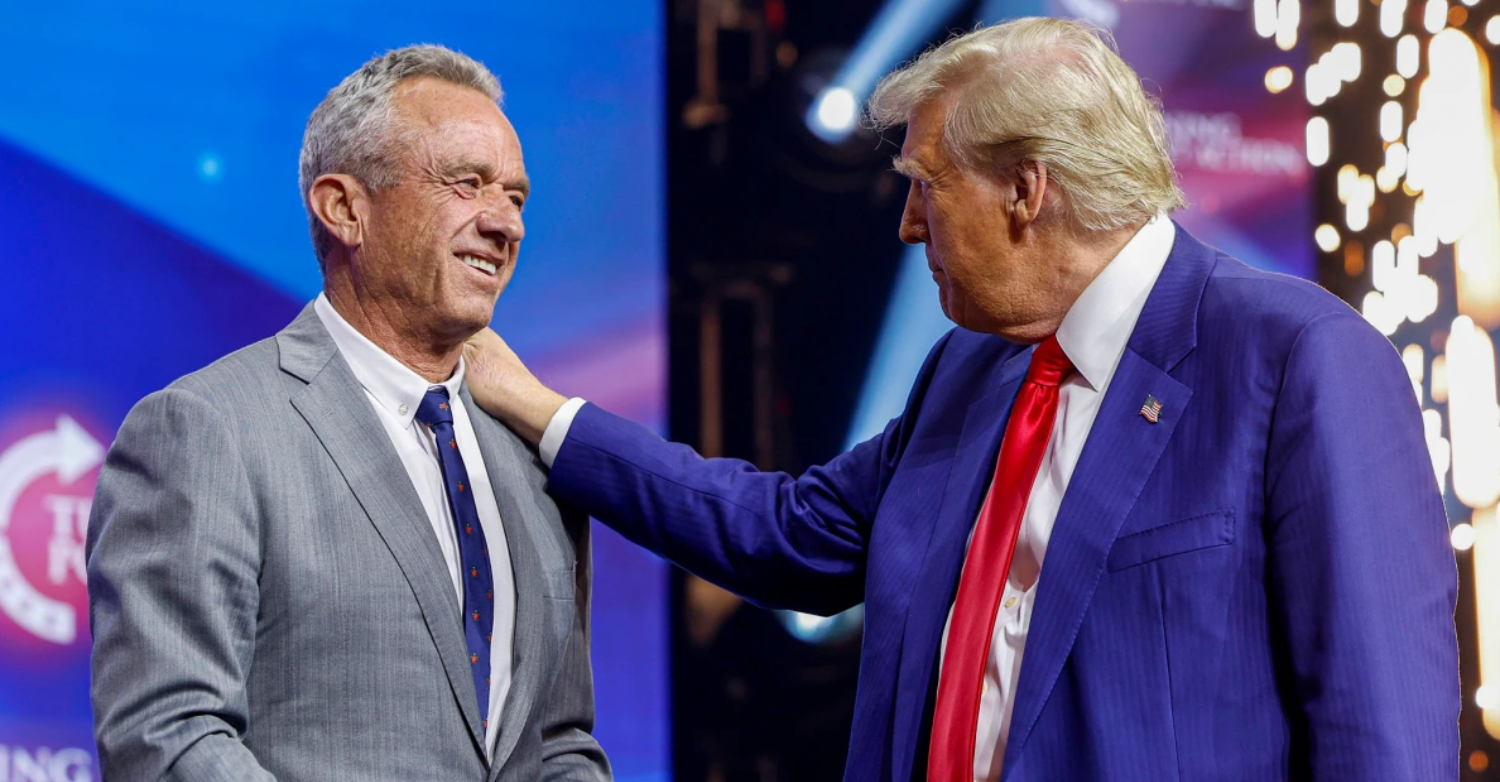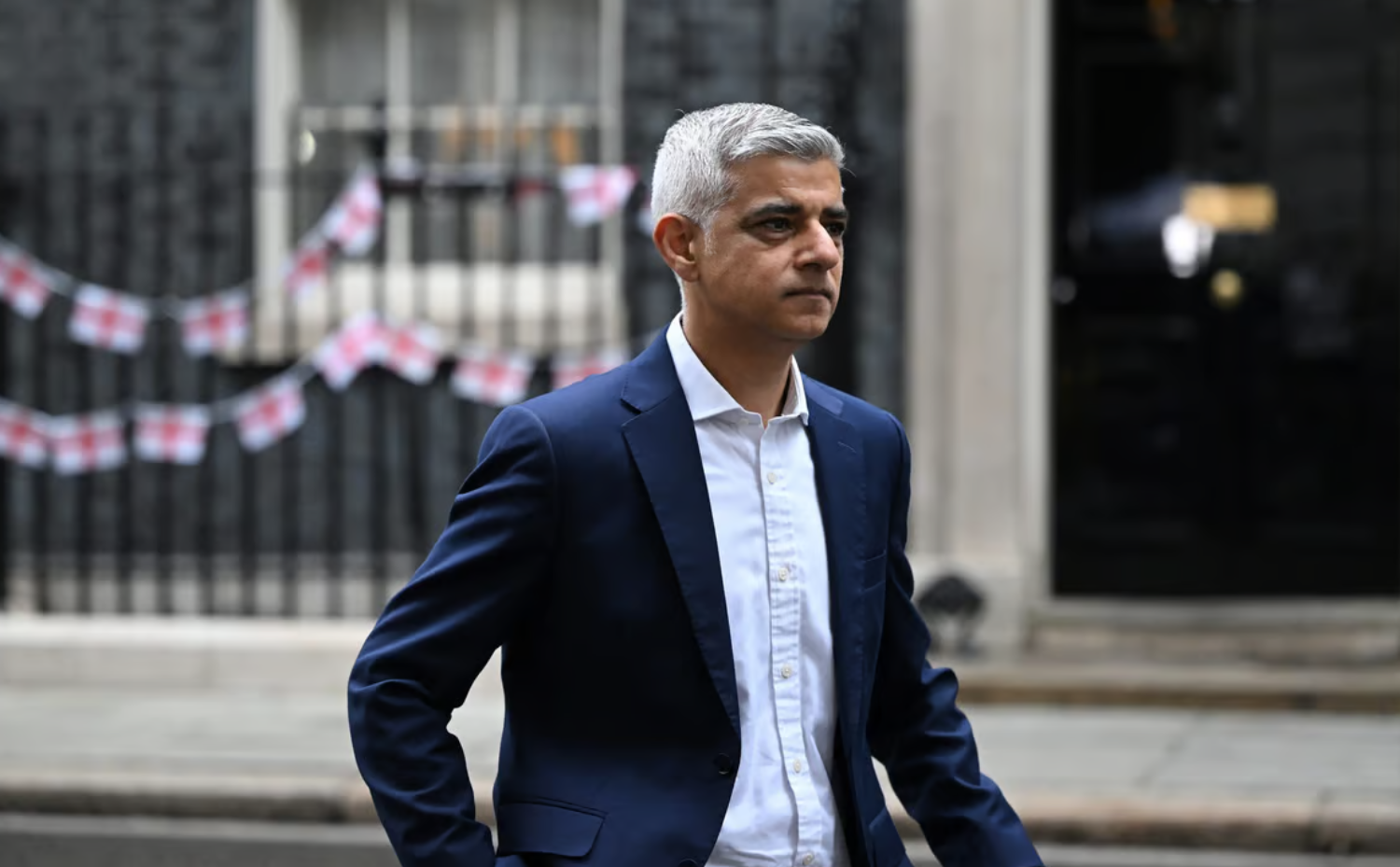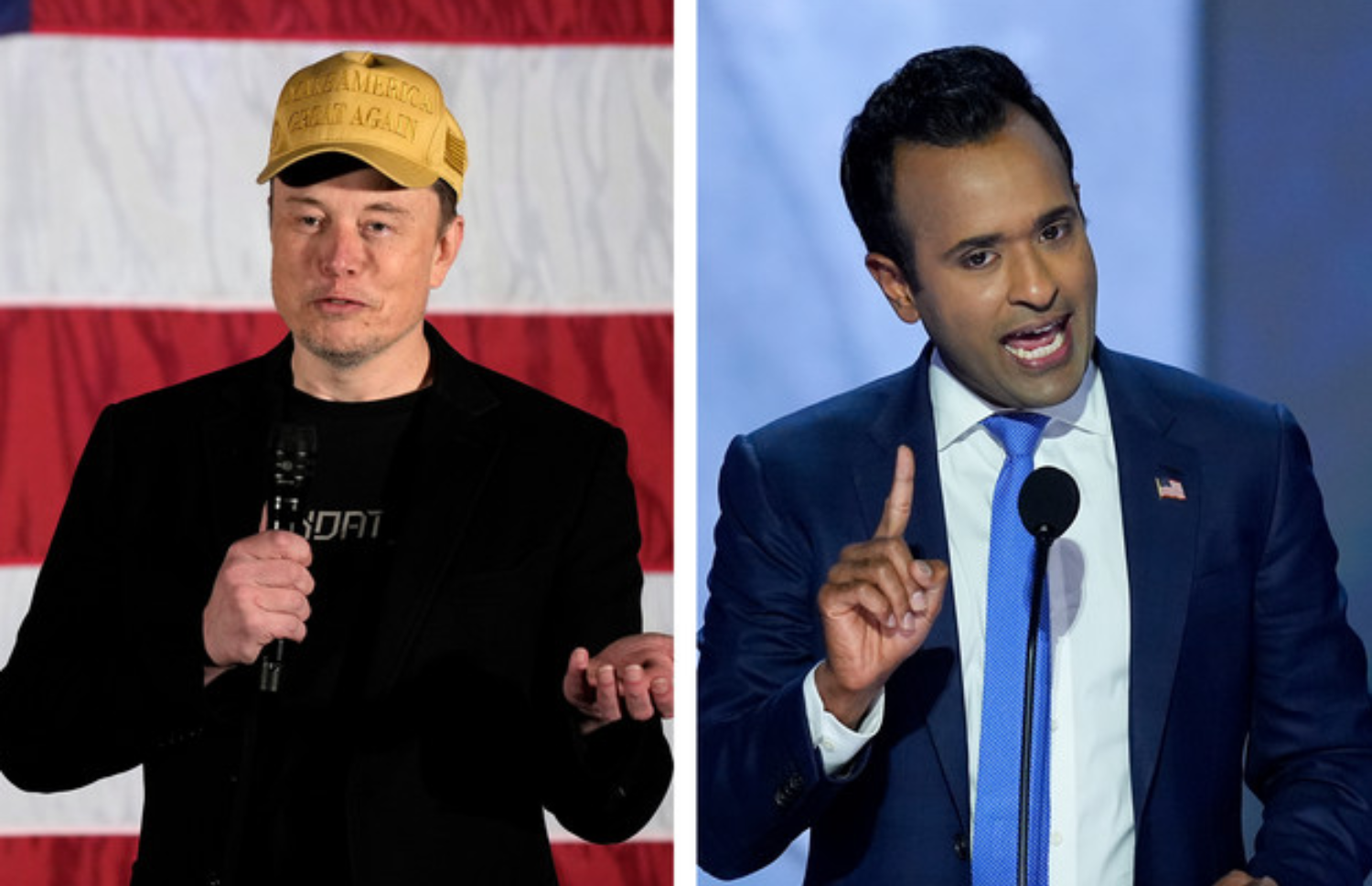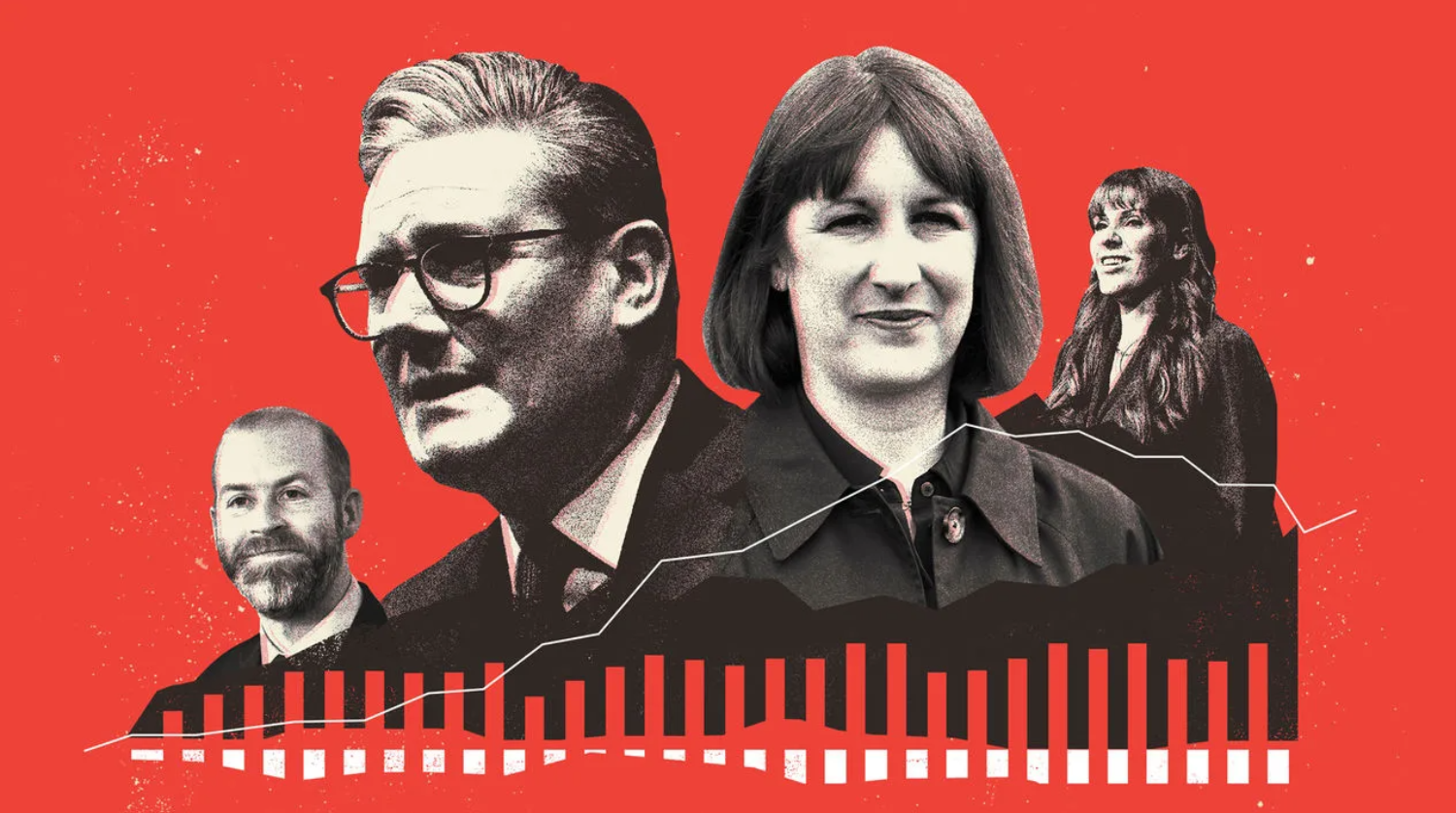-
Posts
10,709 -
Joined
-
Last visited
Content Type
Events
Forums
Downloads
Quizzes
Gallery
Blogs
Everything posted by Social Media
-
The magnetic North Pole, a crucial element of navigation systems worldwide, is shifting toward Russia in an unprecedented manner, as revealed by new data from the British Geological Survey (BGS). While the pole's movement is not new, its current behavior and pace have intrigued scientists. In the northern hemisphere, compass needles point to the magnetic North Pole, a location shaped by the Earth's ever-changing magnetic field. Unlike the geographic North Pole, which remains stationary at the convergence of longitude lines, the magnetic pole has been in constant motion. Historically, it meandered near northern Canada’s coast but began accelerating toward Siberia in the 1990s. From 1600 to 1990, the pole moved approximately six miles annually. That rate surged to 34 miles per year in the 2000s, only to slow to 22 miles per year in the past five years—a deceleration that scientists have never recorded before. The findings come from the BGS, which collaborates with the U.S. National Oceanic and Atmospheric Administration (NOAA) to maintain the World Magnetic Model. Updated every five years, this model predicts the pole’s location and underpins technologies ranging from smartphone compass tools to military navigation systems. William Brown, a global geomagnetic field modeller at the BGS, emphasized its significance, stating, “Planes, boats, submarines, you name it, it’s in there.” The pole’s movement originates deep within the Earth, where molten iron churns in the planet's outer core. This liquid iron, driven by heat escaping from the core, generates the Earth’s magnetic field. Variations in the swirling patterns, roughly 2,000 miles below the surface, influence the magnetic field’s strength and the pole’s position. Describing this dynamic process, Brown compared it to a “giant cup of tea,” noting that the molten outer core has the viscosity of water and is in constant motion. Monitoring these shifts, however, remains complex. When Sir James Clark Ross, a Royal Navy officer and polar explorer, first located the magnetic pole in 1831, he relied on a magnetic needle that pointed directly downward. Today, the BGS employs advanced technology, using satellites and a network of ground stations to observe and map the Earth’s magnetic field. This data sheds light on the behavior of the molten core and its impact on the pole’s location. Professor Phil Livermore from the University of Leeds has offered an explanation for the pole’s unusual recent activity. He describes it as a “tug-of-war” between two magnetic patches—one beneath Canada and another under Siberia. Livermore explained that the Canadian patch seems to have stretched and split, slightly increasing the relative strength of the Siberian patch. This imbalance likely accounts for the pole’s gradual shift toward Russia. While predicting the future behavior of the magnetic North Pole remains elusive, the ongoing monitoring by scientists ensures a better understanding of these complex processes, which are vital for navigation and technology worldwide. Based on a report by the Times and Sunday Times 2024-11-18
-
In a harrowing incident outside Timberline High School in Lacey, Washington, a 17-year-old girl was nearly choked to death by her parents in what police are calling an attempted "honor killing." The girl, whose name has not been released, had run away from home to escape an arranged marriage and sought refuge at her school, where her 16-year-old boyfriend also studied. As she and her boyfriend waited at a bus stop near the school, her father, who had been waiting in his truck, confronted them. Yelling in Arabic, Ihsan escalated the situation when another student intervened, shouting in Arabic for him to leave the girl alone. Enraged, Ihsan punched the girl’s boyfriend before placing his daughter in a headlock. According to witnesses and police reports, the girl’s boyfriend and other students intervened when they saw her begin to lose consciousness, her arms flailing before going limp. Victor Barnes, the boyfriend's father, recounted the chilling moments, stating, "My son starts to see her eyes roll back… he tried to save her." With the help of others, the boyfriend subdued Ihsan, repeatedly striking him until he released his grip. As bystanders restrained Ihsan, Zahraa allegedly joined the attack, attempting to choke her daughter. Students intervened once more, pulling the girl away and preventing further harm. Amid the chaos, the girl’s older sister reportedly attempted to fight off the students, but they successfully separated the mother from her daughter. Witness Josh Wagner, who stopped his car believing he was witnessing a schoolyard fight, helped restrain Ihsan until police arrived. The girl, visibly shaken, fled into the school with her boyfriend, yelling, "My dad was trying to kill me." Zahraa reportedly pursued her into the school but was denied entry. The principal eventually placed the school on lockdown to ensure the girl’s safety. Both parents were arrested at the scene and later appeared in Thurston County Superior Court on November 5. Court records indicate that Ihsan and Zahraa remain in custody on bonds of $100,000 and $200,000, respectively. This horrifying incident has drawn attention to the dangers some individuals face when they resist cultural or familial expectations. The girl's survival was due in large part to the courage and quick action of her peers and strangers who intervened in her time of need. Based on a report by Daily Mail 2024-11-18
-
In his forthcoming memoir *Citizen,* former President Bill Clinton addresses his past connections to Jeffrey Epstein, adamantly denying allegations of visiting Epstein's private Caribbean island while acknowledging travel on the financier’s private plane in 2002 and 2003. Clinton claims his use of Epstein's plane—infamously dubbed the “Lolita Express”—was tied to his work with the Clinton Global Initiative. “The bottom line is, even though it allowed me to visit the work of my foundation, traveling on Epstein’s plane was not worth the years of questioning afterward,” Clinton writes in the memoir, according to excerpts reported by *The US Sun*. He admits to finding Epstein “odd” but insists he had no knowledge of the crimes later associated with the disgraced financier. “He hurt a lot of people, but I knew nothing about it, and by the time he was first arrested in 2005, I had stopped contact with him. I’ve never visited his island,” Clinton states. Epstein’s private island, Little Saint James, has been at the center of allegations of underage sex trafficking. Virginia Giuffre, one of Epstein’s accusers, alleged in 2020 that Clinton was a guest on the island, though she did not accuse him of any wrongdoing. Clinton denies these claims and expresses regret for having ever met Epstein. “I wish I had never met him,” he writes. The memoir also reveals that Clinton met Epstein privately on only two occasions—once at Epstein’s Upper East Side townhouse and another time at the Clinton Global Initiative offices in Harlem. These interactions, according to Clinton, were brief. In 2019, a Clinton spokesperson confirmed the former president flew on Epstein’s plane four times between 2002 and 2003, traveling to Europe, Asia, and Africa. One such trip included a stop in Africa for a humanitarian mission, during which Clinton was photographed receiving a backrub from Chauntae Davies, a flight attendant and Epstein accuser. Davies later clarified that the massage occurred during a layover and described it as consensual and nonsexual. Beyond the Epstein controversy, Clinton uses *Citizen* to reflect on his 2018 NBC interview with Craig Melvin, where he was questioned about his affair with Monica Lewinsky in light of the MeToo movement. Clinton recalls being “caught off guard” and frustrated during the interview, particularly when pressed about whether he had personally apologized to Lewinsky. “I said, ‘No, I felt terrible then,’” Clinton writes, paraphrasing his response to Melvin. The interviewer followed up, asking, “‘Did you ever apologize to her?’” Clinton responded that he had apologized publicly multiple times, but Melvin challenged him, stating others claimed no direct apology had been made. Clinton explains in the book that he publicly apologized in 1999 alongside faith leaders at the White House, naming Lewinsky, her family, his own family, and the American public as the parties he wronged. “I meant it then, and I mean it today,” he concludes. The memoir presents Clinton’s efforts to clarify lingering questions about his controversial associations and past actions, offering insights into both the Epstein connection and the fallout from his presidency’s most notorious scandal. Based on a report by NYP 2024-11-18
-
New Zealand's parliament witnessed a rare moment of cultural resistance as MPs performed a haka to protest a contentious bill aimed at redefining the Treaty of Waitangi, the nation’s founding document between the Crown and Māori people. The legislative chamber temporarily halted its proceedings after opposition MP Hana-Rawhiti Maipi-Clarke led the ceremonial dance when questioned about her party's stance on the proposed legislation. Critics, however, fear the bill threatens Māori rights and undermines efforts toward equity. Kiriana O’Connell, a Māori protester, rejected the notion of altering the treaty’s principles, stating, “The current treaty principles are already a compromise for our people.” Similarly, Juliet Tainui-Hernández, from the Māori tribe Ngāi Tahu, attended the hīkoi with her family to support an inclusive future for New Zealand’s children and grandchildren. Prime Minister Christopher Luxon, while part of the ruling coalition with Act, described the bill as "divisive." Opposition also came from the Waitangi Tribunal, which criticized the lack of consultation with Māori in drafting the bill. It deemed the legislation a breach of the Crown's partnership obligations and warned that the proposed reinterpretation of treaty principles would harm Māori interests. The controversy extends beyond this bill, with many Māori perceiving it as part of a broader trend. Recent government decisions, such as disbanding the Māori Health Authority and reprioritizing English over Māori in naming official organizations, have fueled concerns. Despite comprising about 18% of New Zealand's population, Māori communities continue to face systemic disadvantages, including disparities in health, income, education, and life expectancy. The Treaty of Waitangi, signed in 1840, remains contentious due to discrepancies between its English and Māori texts, particularly concerning sovereignty. While not codified in law, its principles have been embedded in various legislative frameworks. The proposed bill, which passed its first reading with support from all coalition parties, will now undergo a six-month public consultation. However, its future remains uncertain, as coalition partners signal reluctance to back it in subsequent readings. For many, including Winston Pond, who joined the march in Auckland, the hīkoi represents more than just opposition to the bill. “I marched to make the point that Te Tiriti [the Treaty of Waitangi] is very important to our national identity,” he said. As the march progresses, its message reverberates across New Zealand, calling for a reaffirmation of the country’s commitment to equity and respect for its bicultural foundations. Based on a report by BBC 2024-11-18
-
- 1
-

-

Israeli fans violently attacked after Amsterdam soccer match
Social Media replied to Social Media's topic in World News
A pure trolling post has been removed @stevenl -

Israelis in Thailand on Alert After Security Warning
Social Media replied to webfact's topic in Thailand News
Troll post removed @pattayasan -
As the world contends with climate change, Europe’s right-wing leaders are crafting a unique approach that blends climate action with nationalist priorities, offering a blueprint for conservative climate diplomacy. While Donald Trump has signaled plans to withdraw the U.S. from the Paris Agreement if he returns to office, leaders in Europe’s right-wing governments are taking a different path. This year’s COP29 climate summit in Baku showcased how nationalist leaders in Europe, such as Italy's Giorgia Meloni and Hungary’s Viktor Orbán, are reconciling their political ideals with elements of climate action. Although right-wing populism is generally linked with less aggressive climate measures, governments from Italy to Turkey are advancing climate initiatives. Their motivations include protecting economic interests and preventing climate-driven migration. Some leaders, particularly Azerbaijan's Ilham Aliyev, have used climate summits as a platform to "greenwash" authoritarian regimes or to soften the perception of their fossil fuel industries. With notable absences from the summit, including Germany’s Chancellor Olaf Scholz and France’s President Emmanuel Macron, the stage was set for right-wing leaders to steer Europe’s presence at COP29. A close look at their approaches reveals a "green playbook" focused on economic gains, curbing migration, promoting nuclear energy, defending local industries, and showcasing leadership. Hungarian Prime Minister Viktor Orbán set the tone by asserting his opposition to burdensome environmental regulations while praising his country’s progress in clean technology. “We are positioning ourselves to be a significant player in electric vehicle development and electricity storage,” he said, reflecting a push to profit from the booming green economy. A European climate negotiator described this approach as pragmatic, noting that “our companies see they can make money from the green transition… the earlier you start, the bigger a winner you’ll be as a company or a country.” For Italy’s Prime Minister Giorgia Meloni, migration policy intersects with climate. She argues that funding climate action in developing regions like Africa could reduce migration to Europe by creating local opportunities. Italy, under Meloni, has taken steps to expand economic partnerships with African nations, aiming to improve infrastructure and job creation. Last year, Italy pledged €100 million to a fund supporting countries impacted by climate disasters, while a €4 billion initiative has been set up for climate action abroad. At COP29, Meloni emphasized Italy’s ongoing commitment, stating, “Italy intends to continue to do its part.” Right-wing leaders also emphasized nuclear energy as a clean yet stable power source. Poland’s President Andrzej Duda declared, “I believe that nuclear is [the] future and it is only nuclear that will help us to achieve our climate goals.” This view was echoed by Slovakia’s President Peter Pellegrini, who emphasized nuclear power’s role in achieving climate neutrality. Immigration concerns were woven into these discussions, with Orbán criticizing climate legislation that, in his view, places undue burdens on European farmers. “We cannot sacrifice our industry for agriculture… We cannot impose unrealistic quotas or burdensome rules on farmers,” he declared. Duda, addressing Russia’s invasion of Ukraine, also linked regional security to climate concerns, stating, “Russian aggression against Ukraine has shown us that armed conflicts also result in serious environmental damage and pollution.” While some right-wing leaders used the summit to highlight their own environmental efforts, they remained cautious about embracing a full green agenda. Russian Prime Minister Mikhail Mishustin, for instance, avoided mentioning his country’s conflict with Ukraine and instead committed to “the wellbeing of future generations.” Similarly, Turkey’s President Recep Tayyip Erdoğan promoted his country’s ambitions to host COP31, even though Turkey only ratified the Paris Agreement three years ago. Italian Prime Minister Meloni wrapped up her address with a perspective that encapsulates this nationalist climate approach. “We must protect nature,” she said, “with man at its core.” The speeches at COP29 show how Europe’s right-wing leaders are blending climate action with nationalist rhetoric, positioning themselves as pragmatic stewards of both environmental and national interests. Based on a report by Politico 2024-11-16
- 1 reply
-
- 3
-

-

-
Two activists have been charged following an incident in which orange paint powder was thrown over Stonehenge as part of a Just Stop Oil protest, aimed at halting the use of fossil fuels. Rajan Naidu, 73, of Birmingham, and Niamh Lynch, 22, of Bedford, face charges of causing damage to an ancient protected monument, and intentionally or recklessly creating a public nuisance. The pair were arrested in June after dousing the historic monument with orange cornflour powder on the eve of the summer solstice, drawing significant public backlash. Wiltshire Police confirmed the charges, with both Naidu and Lynch due to appear in Salisbury Magistrates’ Court on December 13. Just Stop Oil, the organization behind the protest, stated that the action was intended to pressure the government to cease the extraction and use of oil, gas, and coal by the year 2030. The protest group has increasingly used high-profile demonstrations to bring attention to its demands for environmental reforms. The incident was widely condemned by political leaders and public figures. Then-Prime Minister Rishi Sunak and Labour leader Keir Starmer both voiced disapproval, calling the act unacceptable. English Heritage chief executive Dr. Nick Merriman commented on the impact of the protest, saying, “It’s difficult to understand and we’re deeply saddened about this vandalism, but we’ve been really touched by the messages of sympathy and support we’ve had.” He added that English Heritage's conservation team was quick to respond, as the colored powder on the stones posed a risk if it came into contact with water. “Our experts have already managed to clean the orange powder from the stones,” Dr. Merriman explained, noting that the cleanup was completed with care to prevent any lasting damage. Sophie Stevens, Deputy Chief Crown Prosecutor for CPS Wessex, stated, “The Crown Prosecution Service has authorized Wiltshire Police to charge Naidu Rajan and Niamh Lynch with offences related to damage caused to the protected monument Stonehenge on 19 June 2024.” Related: Stonehenge Seriously Vandalized by Just Stop Oil Activists, Prompting Arrests and Outrage Based on a report by the Standard 2024-11-16
-
Three former employees of Harrods department store have come forward with allegations of sexual abuse and trafficking by Salah Fayed, a brother of Mohamed Al Fayed, from 1989 to 1997. The women, who shared their experiences with the BBC, claim that Salah abused them in various locations, including London, the south of France, and Monaco. One of the women, identified as Helen, has waived her right to anonymity, sharing painful details of her experiences after decades of silence. Helen, who was 23 and enjoying what she described as her "dream" job at Harrods, alleges that Mohamed Al Fayed raped her in a Dubai hotel room. She recalls, "It was like out of a horror film... I was in my nightie, and he grabbed my hand, started pulling me out of the bathroom. I was really trying to stop him, but I couldn't." She describes feeling helpless and far from home, isolated from anyone who might support her. Following the incident, she was instructed to sign a non-disclosure agreement with Harrods. "They've stolen a part of me," she says. "It's changed the course of my entire life." The agreement, Helen says, as well as her fear of reprisal, prevented her from speaking out for over 35 years. In an attempt to escape further encounters with Mohamed Al Fayed, Helen accepted an offer to work for his younger brother, Salah. She thought this opportunity would provide her with a fresh start, but her relief was short-lived. Helen recalls Salah offering her champagne, after which she began to feel disoriented. "Within a few sips, I was starting to feel a bit groggy... it was a really dizzy and weird feeling," she explains. At one point, Salah pressured her to try a bong with crack cocaine, assuring her, "This will make you feel better." This is the last memory Helen has of the evening, which she believes ended with her unconscious and defenseless. She remembers regaining consciousness on a couch in a different room, feeling confused and physically unwell. Her jeans were unbuttoned, and her belt was missing. Helen recalls a painful sensation between her legs and, upon discovering semen, realized what had likely happened. "I knew then what had happened. I knew," she says. In the aftermath, Helen says that Salah contacted Mohamed in her presence, speaking in Arabic. She recalls, "All I could hear was them laughing to each other." As Salah walked her back to her apartment, he introduced her to a friend who had apparently seen her the previous night. Helen now believes that Salah's friend also assaulted her while she was unconscious. Two other former Harrods employees shared similar allegations of abuse by both Mohamed and Salah Fayed. One of these women claims she was manipulated into trying crack cocaine, after which Salah would exploit her vulnerability. "He was trying to get me hooked on crack so he could do whatever he wanted to me," she told the BBC. Helen, who eventually resigned from Harrods, expresses profound grief over her experiences and the impact they’ve had on her life. "I didn’t want to see his face again," she says. Reflecting on the years of silence that followed, Helen shares that breaking her silence now, even after so long, feels essential: "It's the hardest thing I've ever had to say." These accounts shed light on the alleged misuse of power within Harrods and the personal toll on the women involved. Their decision to come forward, despite fears of retaliation, reflects their determination to seek accountability and validate their experiences after decades of feeling voiceless. Based on a report by BBC 2024-11-16
-
Private jet traffic to Baku, Azerbaijan, has surged as global leaders and influential figures gather for the UN’s annual climate summit, Cop29, igniting accusations of hypocrisy over the choice of high-emission travel. In the lead-up to the event, Baku’s international airport recorded 65 private jet landings, with 45 arriving on Sunday and Monday as delegates convened. This marks a significant increase from last year, when 32 private jets landed during the same period. While this count is lower than in Dubai last year or Glasgow in 2021, the surge in high-carbon flights has drawn attention, especially as high-profile attendees seek to address the global climate crisis. The optics of these arrivals have triggered criticism from environmental advocates who highlight the outsized emissions linked to private jets. Denise Auclair, representing the Travel Smart Campaign, stressed the impact of these flights, noting, “Private jets have a disproportionate impact on the environment. They are five to 14 times more polluting than commercial planes per passenger and 50 times more polluting than trains. The number of arrivals by private jet we are seeing at Cop29 puts front and center the hypocrisy of using a private jet while claiming to be fighting climate change.” Auclair added that for some executives, a single long-haul private flight can produce more CO₂ than multiple people might emit over the course of an entire year. This critique echoes findings from Linnaeus University in Sweden, where researchers analyzed over 18.6 million private flights, revealing that certain celebrities produce over 500 times the annual carbon emissions of the average person. Events such as the 2022 Qatar World Cup and last year’s Cannes Film Festival have been linked to major spikes in private jet use. In comparison, last year’s Cop28 in Dubai saw 644 private flights, which collectively emitted an estimated 4,800 tonnes of CO₂. Despite these figures, sources close to aviation operations argue there are “understandable” reasons for some dignitaries to forgo commercial travel, citing security and logistical challenges. Yet the environmental impact remains clear. Between 2019 and last year, annual private aviation emissions rose by 46 percent, reaching 15.6 million tonnes of CO₂—roughly equivalent to Nepal’s yearly emissions. Climate advocates like Alethea Warrington of the charity Possible denounce the practice. “For CEOs who claim to care about tackling the climate crisis, using a private jet to get to Cop shows blatant hypocrisy,” Warrington stated. “Travelling by private jet is a horrendous waste of the world’s scarce remaining carbon budget, with each journey producing more emissions in a few hours than the average person around the world emits in an entire year.” The conference also saw some notable absences, with leaders from several of the top 13 carbon-emitting nations, including U.S. President Biden, China’s President Xi Jinping, and Indian Prime Minister Narendra Modi, opting not to attend. Argentina’s President Javier Milei went a step further, ordering his country’s representatives to withdraw entirely from Cop29. Known for his controversial views on climate change, which he once dismissed as a “socialist lie,” Milei has also signaled the possibility of Argentina’s exit from the Paris Agreement, which mandates greenhouse gas reductions. With over 67,000 people registered, this year’s conference is the second largest in history, following Dubai’s Cop28. The gathering has underscored the urgency of addressing climate change but also highlighted ongoing challenges in aligning global commitments with the actual practices of those in power. For many critics, the arrival of private jets in such high numbers is a troubling contradiction at a moment demanding tangible action. Based on a report by The Times 2024-11-16
-
Families in England are bracing for significant council tax hikes in April, as the government confirms a cap on increases will remain at 5 percent. This move sets the stage for bills to rise substantially, with the average family facing an increase of more than £100—almost three times the current rate of inflation. Sir Keir Starmer’s press secretary clarified the government’s stance during a briefing on Wednesday, stating that the threshold allowing councils to raise taxes “isn’t changing.” This confirmation follows an exchange in the House of Commons, where Conservative leader Kemi Badenoch pressed Starmer to confirm whether the cap would be altered. Although Starmer avoided directly addressing the question, his press secretary later reiterated, “The threshold remains the same.” Under the unchanged cap, local authorities can impose a rise of up to 5 percent without requiring a referendum or special government permission. This increase far exceeds the current inflation rate of 1.7 percent. For the average band D property, council tax bills are set to climb to £2,171 for the 2024–25 financial year—an increase of £106 compared to the previous year. Households in the highest band, band H, will see even steeper hikes, with last year’s £4,342 bill rising by £217. In recent years, council tax increases were limited to 2.99 percent, with an additional 2 percent permitted for councils managing social care responsibilities. However, the ability to raise taxes by up to 5 percent has become critical for many local authorities. A survey by the Local Government Association revealed that one in four councils anticipates needing emergency financial support to avoid bankruptcy within the next two years. Despite this, some councils may hesitate to implement the full increase, given the upcoming local elections in May. Tim Oliver, leader of Surrey County Council and chairman of the County Councils Network, acknowledged the budget allocation's marginal benefits but emphasized that it falls short of resolving broader financial challenges. “The money does not eradicate councils’ funding gap,” Oliver explained, pointing to rising costs driven by the new minimum wage as an additional strain. “Therefore, councils will have little choice but to raise council tax and still will need to take difficult decisions over services to balance their budgets.” As local governments grapple with financial pressures and essential services hang in the balance, the decision to freeze the cap on council tax increases underscores the ongoing tension between fiscal responsibility and meeting community needs. For many families, the rising costs represent a growing burden amidst already challenging economic conditions. Based on a report by The Times 2024-11-16
-
U.S. Senators Katie Britt of Alabama and Jim Risch of Idaho have introduced the Stand with Israel Act, a bill aimed at countering perceived bias and actions against Israel within the United Nations. The legislation seeks to prohibit U.S. funding for any UN agency that moves to expel, downgrade, suspend, or otherwise limit Israel's participation. Senator Britt emphasized the importance of standing with Israel, particularly in light of recent events. “The UN should be pressuring Hamas to release every single hostage, not punishing Israel for defending her people and her very existence. There has been a troubling pattern of anti-Israel sentiment across the UN and its affiliated bodies that has undoubtedly undermined their credibility. Not a single dime of taxpayer money should be used to support or fuel antisemitism. It is imperative we use every tool in our toolbox to stand firm with the Jewish people and our great ally, Israel. This includes rooting out and condemning antisemitism in every corner of our own nation,” Britt stated. Senator Risch also expressed strong disapproval of efforts to challenge Israel's status at the UN, describing such attempts as inherently antisemitic. “Any attempt to alter Israel’s status at the UN is clearly antisemitic. If UN member states allow the Palestinian Authority and the Palestine Liberation Organization to downgrade Israel’s status at the UN, the United States must stop supporting the UN system, as it would clearly be beyond repair. I am disgusted this outrageous idea has even been discussed, and will do all I can to ensure any changes to Israel’s status will come with consequences,” Risch remarked. The legislation has garnered widespread support, with Senators Tom Cotton, Chuck Grassley, Bill Cassidy, and others co-sponsoring the measure. In total, 34 Republican senators have signed on, signaling a unified stance against what they perceive as UN actions undermining Israel’s position. This Senate initiative parallels bipartisan efforts in the House of Representatives, where Congressman Mike Lawler introduced companion legislation, HR 9374. Together, these bills reflect a commitment by U.S. lawmakers to reinforce their longstanding alliance with Israel and combat perceived antisemitism within international organizations. Text of the Stand with Israel Act can be found here. Based on a report by "britt.senate.gov" 2024-11-16
- 91 replies
-
- 17
-

-

-

-

-

-

-
Essex Police, the force currently investigating Telegraph columnist Allison Pearson, has faced significant criticism for its track record on protecting women. Recent figures reveal that the force has had the lowest rate of warnings about potentially abusive partners under Clare’s Law, a measure designed to protect individuals from domestic violence. Clare’s Law, named after Clare Wood, who was killed by her ex-boyfriend in 2009, enables individuals to request information about a partner’s history of abusive behavior. The law operates through two mechanisms: the Right to Ask and the Right to Know. The Right to Ask allows individuals to inquire about their own partner or someone close to them, while the Right to Know requires police to assess domestic abuse intelligence and determine whether potential victims should be informed. In Essex, the Right to Know is applied in every reported domestic abuse incident, with police evaluating whether an internal application for disclosure should be made. If approved, this process enables the proactive release of information to protect a potential victim. However, statistics from the Office for National Statistics (ONS) for the year ending March 2023 show that Essex Police had the lowest Right to Know disclosure rate in England and Wales, acting on just 6.84 percent of cases. This figure stands in stark contrast to the national average. Across England and Wales, the rate of Right to Know disclosures has dropped significantly in recent years, from 55.3 percent in 2019 to 42.5 percent in 2023. Despite the decline, the number of internal applications for disclosure under this scheme has risen sharply, increasing by 147 percent from 7,252 in 2019 to 17,925 in 2023. The Right to Ask mechanism has experienced similar trends. The rate of disclosures under this route fell from 40 percent in 2019 to 35.8 percent in 2023, even as applications quadrupled from 6,496 to 27,419 in the same period. Det Supt Matt Cornish, Essex Police’s lead on domestic abuse, acknowledged the need for improvement. “We recognize that we need to do more to support victims,” he said. He outlined the rigorous considerations involved in disclosure decisions, including whether the information is necessary to protect the person, whether there is an urgent need for the disclosure, and whether it is proportionate to prevent further crime. Legal advice is sought in complex cases to ensure decisions are made appropriately. The scrutiny of Essex Police's handling of domestic abuse cases comes amid broader criticism of the force. In July, a Channel 4 Dispatches investigation revealed that in Thurrock, Essex, 93 percent of car-related crimes resulted in no suspect being identified. This adds to the growing concerns about the force’s overall effectiveness and prioritization of resources. As Essex Police works to address these issues, the statistics highlight the challenges it faces in balancing procedural rigor with the urgent need to protect victims of domestic abuse. Based on a report by Daily Telegraph 2024-11-16
-
Elon Musk, the world’s wealthiest man, recently embraced the label of “the George Soros of the right” while joining President-elect Donald Trump at Mar-a-Lago. Known for his past criticism of George Soros, Musk appeared to relish the comparison to the influential progressive billionaire. Musk’s new moniker surfaced during a surprise visit to the A1Policy conference at Trump’s Florida resort, where he eagerly responded to a speaker’s query: “Where is the George Soros of the right?” Alongside Trump, Musk was freshly named to lead the “Department of Government Efficiency,” an initiative to streamline government operations under Trump’s administration. At the White House that day, the president-elect celebrated Musk’s new appointment, and later, back at Mar-a-Lago, Trump joked to the crowd about his rapport with Musk. “Elon won’t go home,” Trump quipped, “I can’t get rid of him. Until I don’t like him.” The evening took a lively turn when Musk and Trump joined opera singer Chris Macchio in a rendition of “God Bless America.” However, the Daily Mail noted one small hiccup in the performance: Musk, who was born in South Africa, appeared unfamiliar with the song’s lyrics, underscoring a light-hearted moment during an event blending political alignment with patriotic spirit. Musk’s embrace of his new persona signals his readiness to support Trump’s vision in unconventional ways, staking out his role as a powerful, conservative force on the right—a contrast to Soros’s lasting impact on progressive causes. Based on a report by Daily Beast 2024-11-16
-
French authorities have apprehended a suspected serial killer at a train station in Toulon, following an attempted assault on a woman aboard a train. The man’s description closely aligns with that of the primary suspect in the recent killing of a homeless man in Lyon, who was murdered after being struck by bricks thrown at his head. Toulon police identified the man by his striking resemblance to the Lyon attacker, right down to the orange shoelaces he was seen wearing. Images of the alleged Lyon assailant, captured by surveillance cameras, had circulated widely on social media since early in the week, helping the public and authorities in their search. The individual in custody is also believed to be linked to a disturbing series of attempted murders spanning multiple locations, including Évry, Strasbourg, and Dijon in France, as well as Rotterdam in the Netherlands, where another homeless man was attacked with a concrete slab. While questioned by police, the suspect reportedly identified himself as a 37-year-old national of Cameroon. Despite having no prior criminal record, he was under a deportation order due to his undocumented status in France. This arrest has ignited a fierce debate across the country regarding France’s immigration policies and the enforcement of deportation orders, known as "Obligations de Quitter le Territoire Français" (OQTF). Commenting on the situation, politician Marion Maréchal voiced her frustration on social media, writing, “The French are discovering with horror that the serial killer of homeless people, accused of 5 murders, is in fact an illegal Cameroonian under OQTF and that he was able to enter, leave and return freely to France without the slightest border control. Our lax migratory approach is criminal.” The case has led to comparisons with other recent tragedies involving individuals who, despite having deportation orders, remained in the country. Many see these crimes as avoidable and view this situation as evidence of flaws in the current immigration system. Based on a report by European Conservative | X 2024-11-16
-
In a high-profile civil trial at the Dublin High Court, Irish MMA fighter Conor McGregor faces allegations of rape from Dublin woman Nikita Hand, stemming from an incident in December 2018. McGregor, who denies the allegations, admitted in court to using cocaine on the night in question. When questioned by John Gordon SC, McGregor confirmed that cocaine was present in his car, where he, the alleged victim, and another witness were located. During a previous police interview following the alleged incident, McGregor invoked his right to silence, responding "no comment" to over 100 questions under the guidance of his lawyer, citing feelings of "shock and fear." The incident came to light after Hand accused McGregor of rape following a Christmas outing. While the Director of Public Prosecutions in Ireland declined to pursue criminal charges, Hand filed a civil case against McGregor in Dublin's High Court. During his January 2019 interview at Dundrum Garda Station, McGregor provided a prepared statement through his solicitor but refused to answer most questions directly, including whether he and Hand shared the same Crumlin neighborhood. The court reminded the jury of McGregor’s legal right to refrain from commenting, emphasizing that no inference could be drawn from his silence. Addressing his terse written statement, McGregor defended his approach, stating, “I would have loved to go to the top of the mountain with a microphone and shout from the hilltops, but because of the seriousness of the allegation I went to my lawyer and took their advice.” McGregor explained that he had been “beyond petrified” during his initial interview, as this situation was unprecedented for him. He said, “I feel I was as good, as cooperative; I took their advice, I put myself in their hands. This is alien to me; it’s the first time anything like that has ever happened to me in my life.” In his testimony, McGregor maintained his innocence, insisting, “These allegations are false. I’m here to say my piece and my truth. These allegations are lies, they’re false.” McGregor contends that he and Hand engaged in consensual sex twice, a claim she disputes, stating that he raped her. Furthermore, McGregor claims Hand also had consensual sex with his associate and co-defendant, James Lawrence, who is implicated in the case. Lawrence confirmed in his testimony that he had sex with Hand consensually on two occasions after McGregor had left the hotel room. Lawrence described Hand as flirtatious and willing, adding that she only expressed concern over a small bruise and how she would explain it to her boyfriend. Hand, however, asserts that she has no recollection of sexual relations with Lawrence, recalling only that she confided in him about her alleged assault by McGregor and became distressed as a result. When questioned about the level of distress Hand might have experienced, McGregor denied observing any signs of fear or discomfort, describing her demeanor as “enjoyment, elation, and excitement.” He further claimed that during their encounter, she was not wearing a tampon. However, gynecological assessments presented by the plaintiff’s legal team revealed that medical professionals had to use forceps to remove a tampon from Hand following the alleged incident. When asked how the tampon could have been present, McGregor responded, “Not with me.” Additionally, a paramedic who examined Hand shortly after the incident testified that she observed extensive bruising on Hand, which she described as unusually severe. Addressing whether he financially supported Lawrence's legal representation, McGregor acknowledged, "I believe I did." Under cross-examination, Lawrence denied any complicity or attempt to act as a “fall guy” for McGregor, responding, “Not in a million years.” He emphasized that with six sisters and numerous nieces, he would never support such actions if they were true. In Irish civil cases, as opposed to criminal proceedings, both the complainant and the accused are publicly named, with neither party entitled to automatic anonymity. The case continues in Dublin’s High Court, with the outcome remaining to be decided by the jury based on the evidence presented. Based on a report by BBC 2024-11-16
-

Israelis in Thailand on Alert After Security Warning
Social Media replied to webfact's topic in Thailand News
A post well over copyright infringment rules has been removed. The title along with 3 sentences only and the link please @bannork -

Israeli fans violently attacked after Amsterdam soccer match
Social Media replied to Social Media's topic in World News
Off topic report related to France removed. -
President elect Donald Trump has selected Robert F. Kennedy Jr. as his pick for the United States Secretary of Health and Human Services (HHS). Kennedy, commonly referred to as RFK Jr., comes from a prominent Democratic family; he is the son of former U.S. Attorney General and Senator Robert F. Kennedy and the nephew of President John F. Kennedy, who was assassinated in 1963. Despite his political heritage, RFK Jr. is known for his unconventional positions, notably his skepticism towards vaccines and various mainstream health initiatives, which he has advocated against in his career as an environmental lawyer. If confirmed by the Senate, RFK Jr. would assume leadership of the Department of Health and Human Services, an agency charged with safeguarding Americans' health and providing essential services, particularly for vulnerable populations. The health secretary plays a critical role as the president’s top advisor on health, welfare, and income security programs and oversees critical areas, including health research, disease prevention, and food and drug safety. The department also supervises 11 agencies, such as the Food and Drug Administration (FDA) and the Centers for Disease Control and Prevention (CDC). The FDA is responsible for food labeling and drug approvals, while the CDC leads in managing and preventing disease outbreaks. Kennedy’s views on public health and medical science, which have historically diverged from those of the CDC and FDA, could introduce significant shifts in how these agencies operate. Trump expressed strong support for Kennedy’s nomination in his official statement, which underscored Kennedy’s potential to reshape HHS. Trump said, “I am thrilled to announce Robert F. Kennedy Jr as The United States Secretary of Health and Human Services (HHS). For too long, Americans have been crushed by the industrial food complex and drug companies who have engaged in deception, misinformation, and disinformation when it comes to Public Health.” Trump’s statement further reflected his confidence in Kennedy’s vision: “The Safety and Health of all Americans is the most important role of any Administration, and HHS will play a big role in helping ensure that everybody will be protected from harmful chemicals, pollutants, pesticides, pharmaceutical products, and food additives that have contributed to the overwhelming Health Crisis in this Country.” He concluded with optimism about the potential changes Kennedy could bring, adding, “Mr. Kennedy will restore these Agencies to the traditions of Gold Standard Scientific Research, and beacons of Transparency, to end the Chronic Disease epidemic, and to Make America Great and Healthy Again!” The nomination of RFK Jr., an outspoken critic of some government health policies, as head of HHS marks a significant shift. His selection has prompted discussions about the future direction of U.S. public health, with supporters praising his dedication to transparency and critics questioning how his unconventional views might shape HHS policies. Based on a report by BBC 2024-11-15
-
A U.S. government employee, who reportedly worked with the CIA, faces serious charges related to leaking classified information concerning Israel's possible plans for a retaliatory strike against Iran. The employee, Asif Rahman, is charged with two counts of illegal transmission of national defense information following the online release of classified records about Israel's potential actions, as detailed in court documents and information from sources familiar with the case. Although Rahman’s specific role remains unclear, sources confirmed that he held a high level of security clearance and had access to sensitive information. However, they did not clarify whether he was a contractor or a direct employee of the CIA. The alleged leak took place on October 17, with Rahman purportedly transmitting the classified material from locations outside the U.S., including Cambodia, according to court records. Though the court documents do not detail the contents of the leaked materials, sources informed CBS News that the documents related directly to Israel's potential plans to strike Iran. The arrest of Rahman was initially reported by The New York Times. Following his indictment last week in the Eastern District of Virginia, Rahman is scheduled to appear in Guam federal court this Thursday as part of removal proceedings. The case is under intense investigation by federal officials, including those from the Pentagon and FBI, who began looking into the matter last month. According to CBS News sources, documents initially belonging to the National Geospatial-Intelligence Agency surfaced in a Telegram channel just as Israel was reportedly weighing a retaliatory strike against Iran. Sources confirmed the documents appeared to be authentic, adding gravity to the charges Rahman now faces. As more details emerge, Rahman’s case highlights the serious implications of unauthorized disclosure of national defense information and the potential impact on both U.S. and allied security strategies in volatile regions. Based on a report by CBS News 2024-11-15
-
London’s Mayor, Sadiq Khan, has openly labeled former U.S. President Donald Trump a "racist," asserting that Trump targeted him based on his ethnicity and religion. Khan’s statements highlight a long-standing tension between the two, dating back to Trump’s presidency, when Khan faced multiple criticisms from Trump. According to Khan, "if I wasn’t this colour skin, he wouldn’t have come for me," a claim he made while speaking on the High Performance podcast. Khan shared that Trump’s criticism felt personal, remarking, “He wasn’t coming for me because I’m five foot six. He’s coming for me for – let’s be frank – my ethnicity and my religion.” Khan has long condemned Trump’s policies, describing them as “sexist, homophobic, Islamophobic, racist.” The feud between the two gained attention in 2017 when Trump challenged Khan to an IQ test, then accused him of a poor response to the London Bridge terror attack. In a subsequent insult, Trump called Khan “very dumb” and a “stone-cold loser who should focus on crime in London.” Khan has responded by accusing Trump of "hard-Right populism" and even sanctioned the now-iconic "Trump baby blimp" to fly during Trump’s diplomatic visit to the UK. Khan’s critique of Trump extends beyond personal grievances; he views Trump’s influence on the global stage as deeply troubling. “What worries me though, it’s not about me and my family – it’s about the fact that he’s the leader of the free world,” Khan said. He expressed a sense of duty to speak out against Trump’s divisive policies. “This is the president of the USA, a country we all adore, love,” he continued, stressing that the U.S. could either be a source of “hope and love” or “hate,” depending on its leader’s choices. Reflecting on whether he would challenge Trump again, Khan was unwavering. “Would I do it again? Absolutely, because you’ve got to speak the truth with power,” he stated, underscoring the global impact of America’s policies. Khan insists that, as Mayor of London, he has a responsibility to advocate not only for Londoners but also for people affected by U.S. policies worldwide. Despite their contentious history, Khan extended a surprising invitation for Trump to visit London. "I would love Donald Trump, whether he wins or not, to come to London," Khan said, offering to show Trump the city's diversity and inclusivity. “Let me show him around our wonderfully diverse communities. Let me take him on the Pride march next summer. Let me take him to a mosque, let me take him to some of our diverse communities,” he continued, emphasizing the compatibility of Western and Muslim identities. Khan underscored that pluralism and respect for differences are integral to democracy, hoping to demonstrate that “it is perfectly compatible to be a Westerner and to be a Muslim” and that treating women with respect is essential for any leader. Through this invitation, Khan extended an olive branch, suggesting that understanding and dialogue are possible despite deep disagreements. He believes that while society is diverse, “the joy of democracy” is found in its pluralism. In Khan’s view, disagreement can be handled agreeably, and even bitter rivals can seek common ground to appreciate each other’s perspectives. Based on a report by Daily Telegraph 2024-11-15
-
The federal government is preparing for a major shift as one of Silicon Valley’s most renowned disruptors, Elon Musk, prepares to tackle bureaucracy at the highest level. President-elect Donald Trump announced that Musk would lead a new initiative called the “Department of Government Efficiency” (DOGE), intended to root out waste, fraud, and inefficiency across federal operations. The project is unprecedented, and questions remain about which parts of the government Musk’s new office will target and how seriously Washington will take the endeavor. Musk isn’t taking on this challenge alone. Joining him is Vivek Ramaswamy, a biotech investor and outspoken MAGA supporter who recently ran against Trump in the GOP primary. Both Musk and Ramaswamy come from outside the D.C. establishment and bring a fresh perspective that has the potential to radically reshape federal bureaucracy. They plan to infuse their outsider mindset into the realm of government reform, approaching it with the same disruptive mindset that has shaped Musk’s ventures in technology and industry. Trump's announcement, shared on Truth Social, described the initiative in his characteristic grandiose terms, calling it potentially the “Manhattan Project” of the current era, with the power to “send shockwaves through the system.” Trump and Musk first publicly discussed the project during a live interview on X, where Trump had previously proposed cutting $2 trillion from the federal budget. The timeline or specifics of this proposed cut remain ambiguous; if it were to be achieved annually, it would mean substantial reductions that could encompass all non-entitlement spending, including even defense. The scope of such a cut would be unprecedented, raising questions about its feasibility and the extent to which Congress, including its more conservative members, would support such an ambitious goal. Musk’s influence in Washington, however, remains uncertain. While he has pledged to support candidates aligned with his views in upcoming Republican primaries through his political action committee (PAC), his early influence has shown mixed results. Notably, Musk’s preferred candidate for Senate majority leader, Rick Scott of Florida, lost out to Senator John Thune of South Dakota, a more established GOP figure. These early signs suggest that while Musk has the ambition to steer Congress toward his efficiency goals, his power to shape leadership decisions in Washington might be more limited than anticipated. Musk’s management style—famously intense and results-driven—could redefine federal oversight if applied broadly across government agencies. Known for his tough approach at X and Tesla, Musk is likely to push for similar stringent oversight in the federal sector. Environmental programs, labor initiatives, and spending on diversity, equity, and inclusion might all face scrutiny, given Musk’s prior public statements on such topics and his preference for lean, results-oriented budgets. Ramaswamy’s plans, meanwhile, are still developing. In a recent post on X, he announced a plan to crowdsource examples of government “waste, fraud … and abuse,” signaling that DOGE might actively engage the public in identifying areas for reform. This approach underscores the project’s outsider ethos, potentially inviting fresh perspectives on federal spending and encouraging public involvement in government oversight. While proponents of government efficiency may find the project intriguing, many remain skeptical. The scale of the proposed cuts and the radical approach Musk and Ramaswamy bring may prove challenging in a city where long-standing procedures and entrenched interests often slow down or block swift changes. For Washington, this venture represents a bold experiment, one that could transform federal bureaucracy—or falter under the weight of resistance from within. Based on a report by Politico 2024-11-15
-
When Rachel Reeves steps up to deliver her first Mansion House speech, she’ll likely receive polite applause from the gathered business elite. Yet behind the scenes, an increasing number of business leaders who backed Labour before the election are now voicing serious concerns. Reeves’ budget, which involves a £25 billion increase in employers’ national insurance contributions, has many in the business community questioning the future of Labour’s pledge to be the “party of business.” In defense of the tax hike, the Chancellor has argued that companies should be able to adjust and absorb the increased cost. However, some of the UK’s largest companies are warning of rising prices and potential job losses as they attempt to safeguard shrinking profits. This stance is in stark contrast to Labour’s promises during the campaign when Reeves asserted that her party would be the champion of “wealth creation” and business. Businesses are now grappling with what they describe as a “perfect storm” of burdensome policies: tax hikes, an increased national minimum wage, and the most sweeping overhaul of workers’ rights in a generation. “You cannot just engage on the way in,” remarked the CEO of one of the UK’s largest retailers. “You have got to keep business with you. With workers’ rights, the consultation worked, but the rise in the national insurance contributions was unexpected.” Another advisor to a major FTSE 100 firm was more direct, saying, “Business is feeling very sore. Two years of supine breakfast, and the first chance they get, they give business a slap.” Business groups have begun to mobilize in response. The British Retail Consortium has warned that job losses and price hikes are “inevitable.” The Institute of Directors expressed that the budget poses a “damaging hit,” while the Confederation of British Industry voiced concerns that Labour’s budget lacks a clear “plan for growth.” In opposition, Reeves positioned Labour as more pro-business than even Tony Blair’s administration, with promises to stimulate private investment. To bolster this commitment, Labour established a British infrastructure council that brought on board leading financial players such as Lloyds, HSBC, Santander, and Fidelity. However, as the impact of Labour’s new budget settles in, some business leaders are speaking out. Andrew Higginson, chair of JD Sports, stated that Labour’s tax increases would be “too much to bear” in tandem with the minimum wage hike. “The cumulative effect of all these changes is too much for industry to bear,” he warned, “in the sense of them being able to get on and invest and grow.” Mark Glover, executive chairman of SEC Newgate UK, noted that while Labour’s emphasis on growth had been promising, the decision to increase employers’ national insurance contributions struck many as counterproductive to that goal. “They can’t quite see how that’s encouraging growth,” he said. Emma Woods, chair of the restaurant chain Tortilla, had been among those who initially endorsed Labour. But now, alongside other hospitality executives, she is voicing fears of “unprecedented damage” to the industry from rising employment costs. Adding to the discontent, Sir Tim Martin, CEO of Wetherspoons and a former Tory donor, has warned that these policies will ultimately lead to higher consumer prices. “Good economic policies require common sense and business savvy,” Martin said, emphasizing the need for an understanding of “what makes people tick.” According to him, this was “a political budget” that may dampen the optimism and “animal spirits” essential for economic growth. Initially, Labour leader Keir Starmer announced plans to personally chair five “mission delivery boards,” including one focused on growth. Yet, after the election, these boards were assigned to secretaries of state rather than Starmer himself. Despite a successful investment conference in October that brought major banks and businesses to the table, the recent budget has changed the tone. Labour’s national insurance increase disproportionately affects companies with large numbers of low-paid workers, hitting major supermarkets particularly hard. Tesco, for instance, faces a £1 billion rise in its national insurance costs over the current parliament. Sainsbury’s, Morrisons, and Asda have all raised concerns over the added financial strain. A Confederation of British Industry survey found that nearly two-thirds of 185 businesses now have a negative view of the budget, with many asserting that it will make Britain a less appealing investment destination. Compounding the situation, there is worry over potential U.S. tariffs. “We’re not in the EU, so we’re getting clobbered on the trade there,” commented a FTSE 100 advisor, adding that Donald Trump’s proposed import tariffs could spell further trouble. “We’re so screwed,” he added with a note of resignation. In the weeks and months ahead, Labour’s relationship with the British business sector will be tested as leaders evaluate how closely the party’s rhetoric aligns with its policies. For now, many in the business community remain deeply concerned about the road ahead. Based on a report by The Times 2024-11-15





